Below is the final communique from the Cabinet meeting of May 30, 2017 chaired by Prime Minister, Head of Government Philemon Yang
« The Prime Minister, Head of Government, His Excellency Philemon YANG, this Tuesday 30 May 2017 chaired this month's Cabinet Meeting at 9 a.m. at the Prime Minister's Office. The meeting was attended by Ministers of State, Ministers, Ministers Delegate and Secretaries of State.
Three items featured on the agenda namely:
1-Statement by the Minister delegate to the Minister of Transport on "development thrusts of inland navigation in Cameroon";
2-Statement by the Minister of Public Works on "direct labour-led innovations of road construction works";
3-Statement by the Minister Delegate at the Presidency of the Republic in charge of Supreme State Audit on "audit strategy on the implementation of Government programmes and projects".
Speaking after the introductory remarks of the Head of Government, the Minister Delegate to the Minister of Transport first painted a picture of river navigation at the national level, showing that Cameroon has a dense but unevenly distributed hydrographie network which is inadequately exploited. He stressed that the inland waterway is an alternative mode of transport, which aIlows the movement of persons and goods, as well as access to agricultural basins. However, the organization of river transport in Cameroon remains embryonic, and even artisanal, and is confronted with various constraints such as the displacement of natural channels of navigation due to silting; the existence of water- falls and successions of rapids; the congestion of rivers in particular by water hyacinths, and the shaIlow draught during low water period.
The Minister Delegate to the Minister of Transport then dwelt on the priorities for the development of river navigation in Cameroon, namely: (i) the identification of navigable sections with regard to the hydraulic potential of water bodies; (ii) the development of specifie regulations for inland navigation; (iii) development of economie spaces along the main water bodies and (iv) construction of sub-regional integrated waterways.
Taking the floor after this statement, the Minister of Public Works said that the provision of services under direct labour is organized by Decree No. 2016/0886/PM of 25April 2016 to lay down general rules for the realization of direct labour infrastructural projects. This is an innovative approach to speeding up works, studies or control operations that are of an urgent, strategie or exceptional nature and that cannot accommodate traditional contractual procedures. The achievements recorded at the end of the first year of implementing the direct labour concemed the finalization of the detailed preliminary design studies for the contractualization of the reconstruction work on the Yaounde-Bafoussam-Babadjou road; The execution of rehabilitation works of the first phase of the Mora-Dabanga-Kousseri road; The reopening of the Mundemba-Isangele road; The development of the Yebekolo-North road infrastructure.
He continued his statement by pointing out that due diligence is being carried out to complement the regulatory framework governing work on the road, in particular aspects relating to (i) simplifying procedures related to the various purchases made by a contracting authority; (ii) deciding on the terms and conditions for the payment of services performed under direct labour and (iii) setting the amount to be paid to the personnel involved in the execution of the contract.
The Minister Delegate at the Presidency of the Republic in charge of Supreme State Audit made the last statement on audit strategy on the implementation of Government programmes and projects. It was understood that Law No. 2007/006 of 26 December 2007 on the State financial system changed the State' s budgetary architecture by introducing programmes, with objectives and performance indicators. The Law also enshrines conformity and regularity audits to performance audits. Indeed, these involve determining the extent to which a public policy or Government project has achieved its stated objectives and produces the expected results or impacts with a target audience in accordance with the criteria of effectiveness, efficiency and effectiveness, and economy.
She concluded her statement by saying that the strategy for auditing the performance of Govemment programmes and projects in Cameroon is based on international standards and good practices in this area, namely (i) the definition of area of control; (ii) the determination of the methods of intervention which may be carried out by direct appreciation or by attestation; (iii) identification of potential stakeholders; (iv) prioritizing and selecting programmes and projects to be audited; (v) steering the strategy itself.
After the discussions foIlowing the statements, the Head of Govemment noted that the river and lake transport sector is underdeveloped and that its development is a real niche for growth and job creation. He instructed the Minister of Transport to ensure the finalization of the Master Plan for the Development and Exploitation of Waterways and to initiate the training of personnel involved in the inland transport chain.
The Prime Minister also instructed the Ministers of Public Contracts and Finance to urgently finalize the joint instruments relating to the simplification of procurement procedures and the ...
Cet article complet est réservé aux abonnés
Déjà abonné ? Identifiez-vous >
Accédez en illimité à Cameroon Tribune Digital à partir de 26250 FCFA
Je M'abonne1 minute suffit pour vous abonner à Cameroon Tribune Digital !
- Votre numéro spécial cameroon-tribune en version numérique
- Des encarts
- Des appels d'offres exclusives
- D'avant-première (accès 24h avant la publication)
- Des éditions consultables sur tous supports (smartphone, tablettes, PC)
Reactions
De la meme catégorie
Security In The South West : Army Chief of Staff On Field Control In Buea
- 18 avril 2024 11:55
- 0 likes






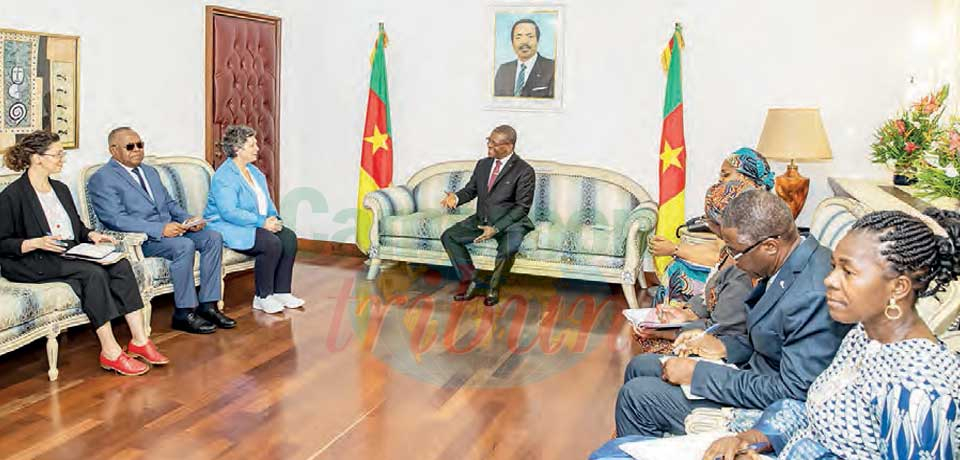
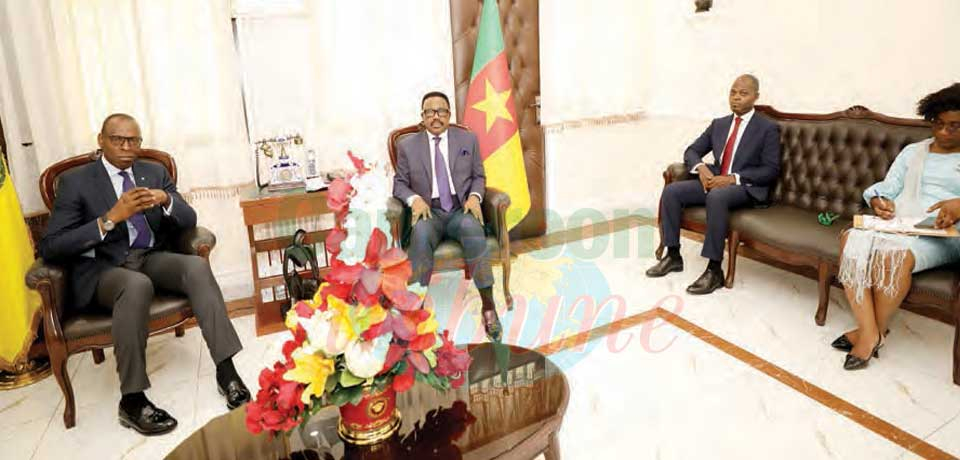
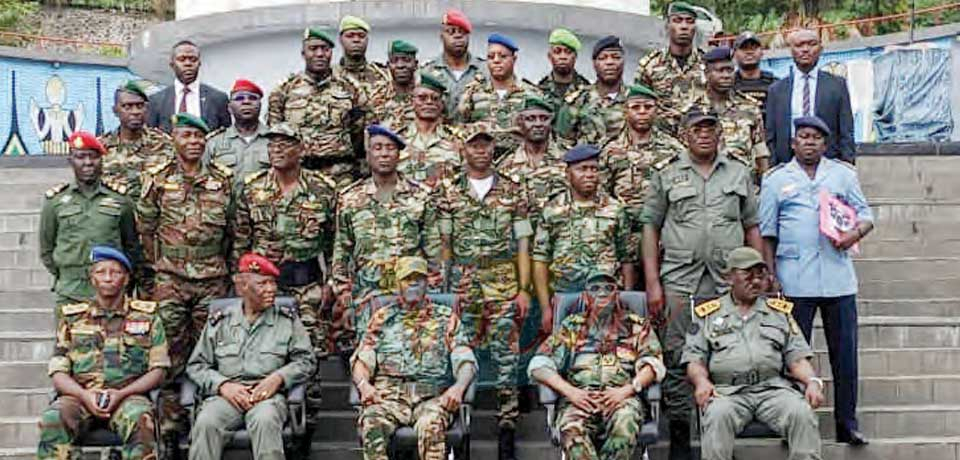
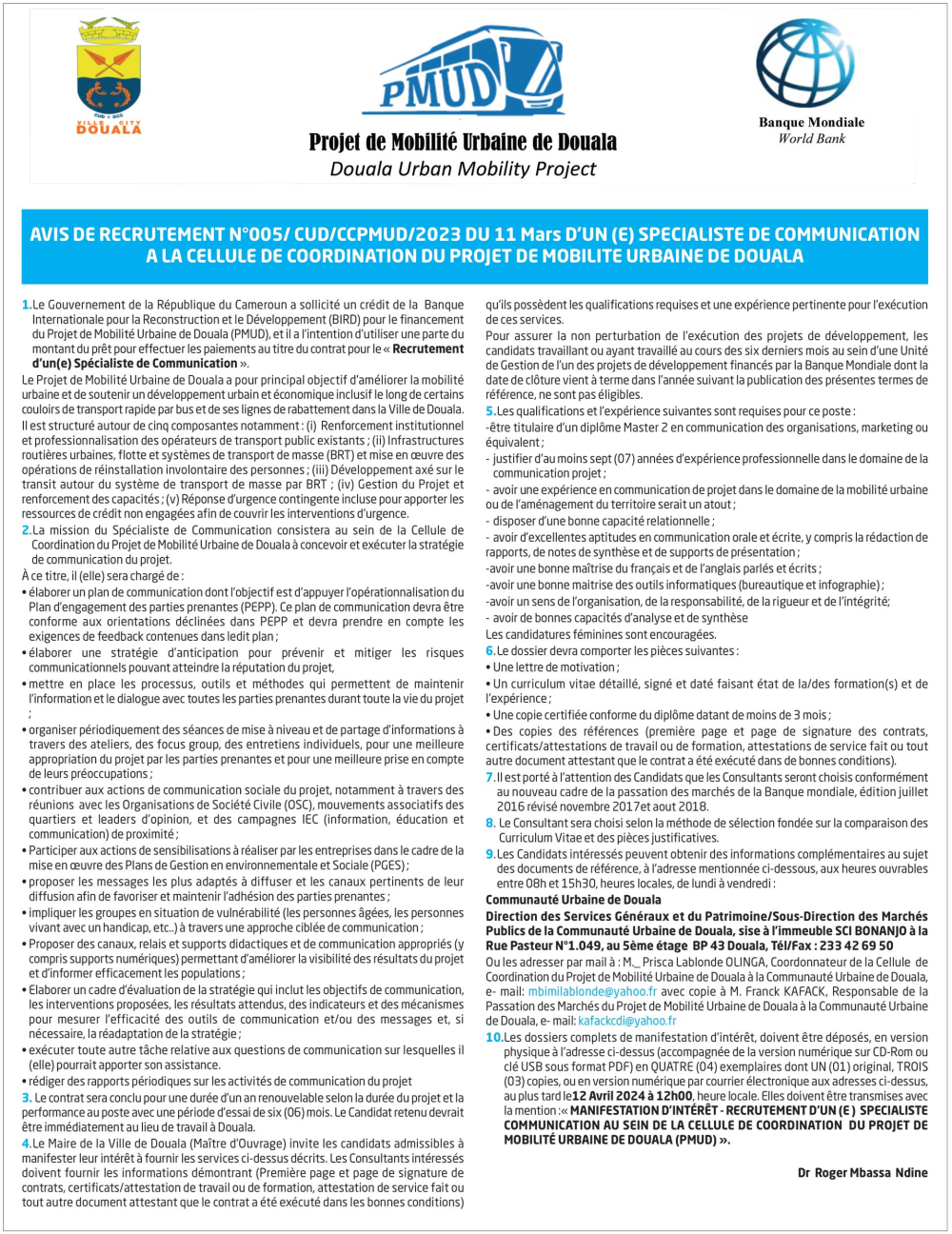
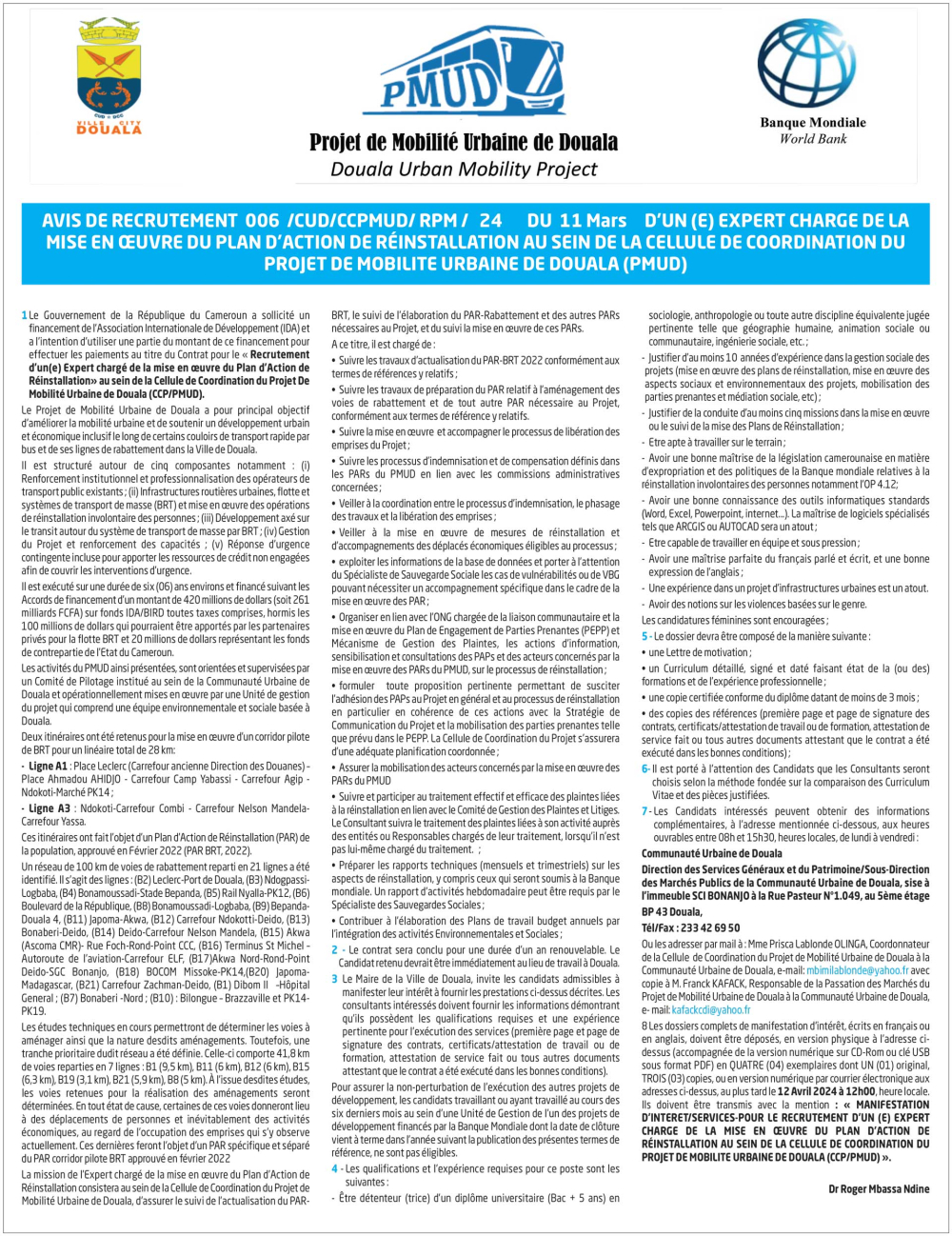





Commentaires